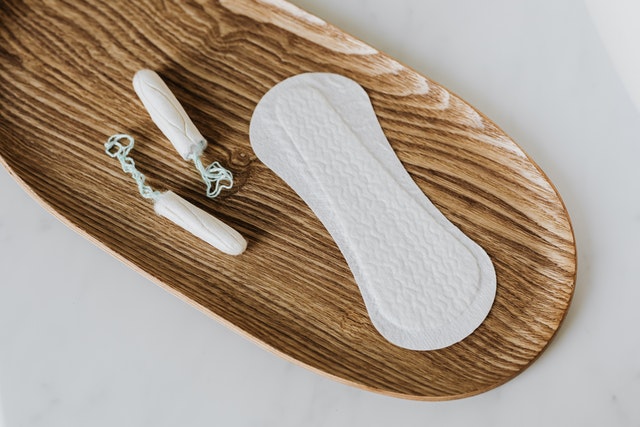About 10 million annual visits to the doctor are due to vaginal complaints (for women in the United States). That’s because women of childbearing age undergo hormonal changes throughout their lifetime. The vagina is a natural self-cleaning organ, which is why discharge can happen, as it helps to keep the vagina clean and free of infection.
However, since there are different types of vaginal discharge, it can be confusing to figure out what’s normal and what isn’t. In a study of 416 women, about 14% are uncertain about their discharge (if it’s normal or not). For instance, if you experience brown discharge after your period, is that normal?
Understanding the different types of vaginal discharge can help you identify what’s normal for you and what isn’t. Read on to learn more about brown discharge after a period, what causes it, and when you should see a doctor.
What’s Causing Brown Discharge After My Period?
Brown discharge is primarily due to oxidation. When blood gets exposed to air, its color turns from red to brown. The blood contains oxygen-carrying proteins called hemoglobin. These proteins have iron molecules that bind to oxygen, which provides its rich color. However, oxidation gives this blood a brownish hue when exposed to air.
Since some menstrual blood takes a bit longer to leave the body, you may see this brown discharge a few days after your period. Typically, it’s older blood mixed with your vaginal secretions. This occurrence is perfectly normal and nothing to be concerned about.
What Does Brown Discharge Mean?

A brown discharge could mean several things. In most cases, it could be leftover blood from your previous period, which is normal. However, there are other reasons you may experience brown discharge. These include the following:
Implantation Bleeding
When a fertilized egg attaches to the uterine lining, you might experience spotting or light brown discharge after a period. This process is called implantation bleeding, which usually happens 10 to 14 days after conception. It happens to 30% of women who conceive.
Many women often mistake this for period blood because it can happen around the time you expect your period. However, implantation bleeding is lighter compared to menstrual bleeding.
Birth Control Implants
Some contraceptives, such as the birth control implant, slowly release the progestin hormone into your body. It can cause changes in your vaginal discharge, including brown discharge 2 weeks after a period. You might experience spotting and breakthrough bleeding for several months when you first get the implant. It’s normal and should eventually go away as your body adjusts to the implant.
Pelvic Inflammatory Disease (PID)
Infection of the cervix or uterus can cause brown discharge. PID is usually due to an STI like chlamydia or gonorrhea. Other symptoms of PID are a pain in the pelvis and lower abdomen, fever, painful urination, painful sex and heavy discharge with an unpleasant odor.
PID is a severe medical condition that needs prompt evaluation and treatment. If you think you may have PID, see a doctor immediately.
Cervical Cancer
In rare cases, brown discharge can be a sign of cervical cancer. Other symptoms of cervical cancer include abnormal bleeding (between periods, after sex, or post-menopausal bleeding), pelvic pain, and pain during sex.
When Could Brown Discharge Be the Sign of a Problem?
In most cases, light brown discharge after your period is nothing to be concerned about. However, if you experience a brown period blood for a week, is accompanied by other symptoms like itching or burning, has a foul odor, or is heavy and soaking through your pads or tampons, it’s time to see a doctor. These could be signs of an infection or other medical conditions.
For other concerns about your brown discharge, the best thing to do is make an appointment with your OB/GYN. They can evaluate your symptoms and help you determine the cause of your brown discharge.
Why Does My Period Smell Bad?
A brown discharge with an unpleasant smell could be a sign of an infection. The most common cause is an STI. There could be other causes, such as a retained foreign object or a change in your diet. These conditions require prompt medical attention and treatment.
Nonetheless, brown discharge with an unpleasant smell is a giveaway that something is not right, and you should consult with your doctor as soon as possible.
How Do I Stop Brown Spotting After My Period?
How to stop brown discharge after your period will depend on the underlying cause of your brown spotting. There are several things you can do to help.
Practice Good Hygiene
Showering regularly and washing your intimate area with warm water and gentle, fragrance-free soap is the best way to keep yourself well-cleaned. It will help to remove any blood or discharge that may be causing your brown spotting.
Avoid Stress
Stress can cause all sorts of hormonal imbalances that can lead to brown spotting after your period. If you’re experiencing this problem, try to find ways to relax and reduce your stress levels. When you eliminate stress in your life, you can look your best self and feel your best, too.
Eat a Balanced Diet
A balanced diet is important for maintaining hormonal balance in your body. Eating plenty of fruits, vegetables, and whole grains will help to regulate your hormones and keep your periods regular. Avoiding processed foods, sugary foods, and caffeine can also help to reduce brown spotting after your period.
Change Your Sanitary Products Often
If you use pads or tampons, change them often, at least every 4 hours. Otherwise, they can cause irritation and unpleasant odors. It can also lead to toxic shock syndrome, a rare but serious condition that can be fatal.
Wipe from Front to Back
Always wipe from front to back after going to the bathroom. It helps prevent bacteria from getting into your vagina and causing an infection.
Wear Cotton Underwear
Cotton is a breathable fabric that helps keep your intimate area dry. Ill-fitting undergarments might cause friction and moisture build-up, leading to brown spotting. Avoid tight-fitting underwear, thongs, and synthetic fabrics like polyester.
Avoid Vaginal Douche
Women tend to over-clean their vaginas, disrupting the natural balance of bacteria and pH levels. This issue can lead to brown discharge or other vaginal infections. As such, it’s best to avoid vaginal douching as it can only worsen your symptoms. Simply washing the external area with warm water is enough to keep your vagina clean.
Every woman’s body is different, so paying attention to any changes in your discharge is essential. A brown discharge after your period might be nothing to worry about. However, other symptoms accompanying it might indicate an infection or other medical conditions. So, understanding the underlying cause of your brown discharge is crucial to determining the best way to treat it. If you’re unsure, don’t hesitate to consult with your OB/GYN. They will help you figure out the cause and provide the appropriate treatment.

